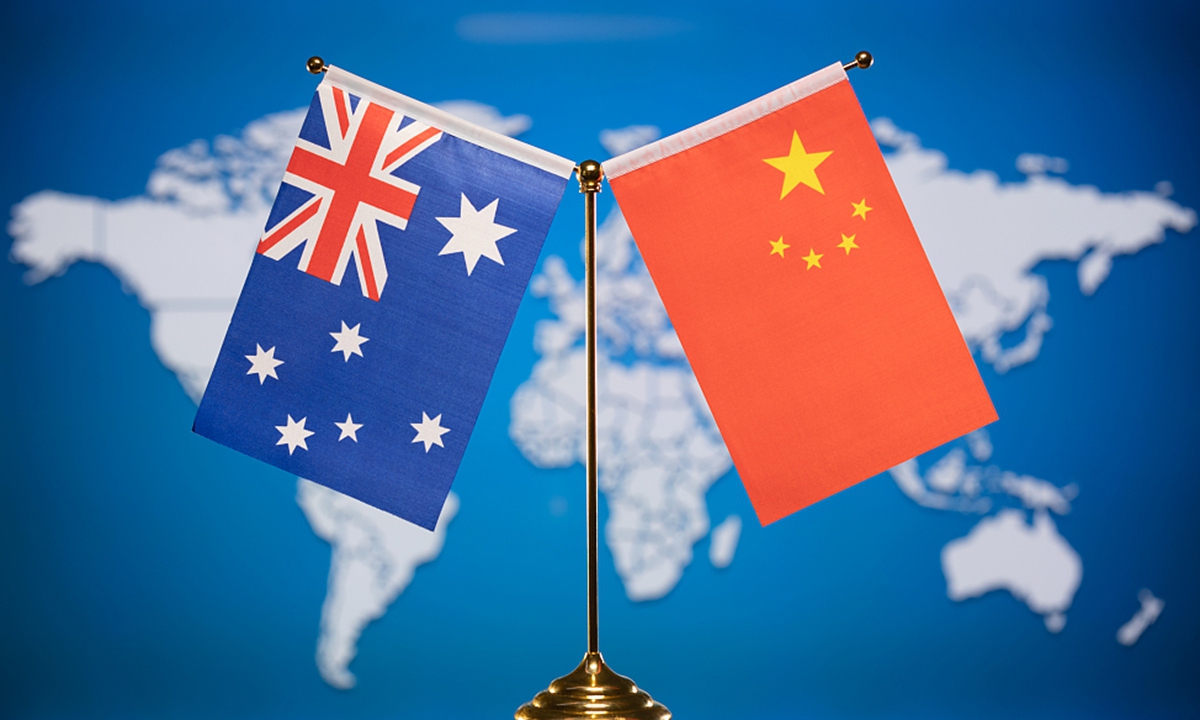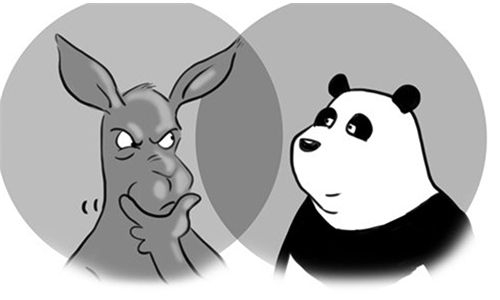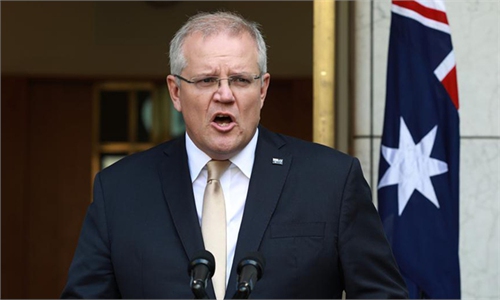
China Australia. Photo: VCG
While trade tensions between China and Australia continues amid a downward spiral of bilateral relations, some Australian businesses haven't given up the opportunity to promote their presence in the Chinese market.The Victorian state government of Australia paid for dozens of Victoria-based companies to attend the fourth China International Import Expo (CIIE), according to a report by the Daily Mail on Sunday. The Victorian government said the presence at the CIIE, the world's largest import fair, will help connect their businesses to the world's largest market to secure new contracts and help create jobs in the state.
Despite the deteriorating ties between Canberra and Beijing that has cast a shadow on bilateral economic and trade cooperation, the move by Victoria state highlights the appeal of the Chinese market. Even though the Australian federal government has been encouraging local companies to diversify away from China, many in the Australian business community still share the belief that the potential of the Chinese market is unmatched by any other economy.
Australian businesses reluctant to give up a shot at the massive market had to search for ways to reengage with their Chinese customers, and the CIIE appears to be a perfect match in that it represents a window for China to demonstrate its strong purchasing power to the world.
However, it should be pointed out that there is no shortage of opportunities on China-Australia economic and trade cooperation. The economic complementarity between China and Australia has made the two natural trading partners. While the relationship between the two countries has been deteriorating, the bilateral trade has weathered political headwinds, underscoring the strong basis for trade cooperation.
Total trade between China and Australia reached $193.65 billion from January to October, up 38.4 percent year-on-year and higher than the overall trade growth recorded by China, the Chinese customs data showed on Sunday.
Moreover, the Regional Comprehensive Economic Partnership (RCEP) will come into force in January 2022, and countries that have ratified RCEP -- which include China and Australia -- are expected to embrace a great opportunity for economic and trade development. Australia's then trade minister Simon Birmingham said in November 2020 that Australia hoped the RCEP would help reset economic relations with China.
Yet, all these opportunities may be wasted if Australia cannot face up to the fact that it is Canberra which has driven its relationship with China into a diplomatic ditch.
The past year has seen the Morrison government exhibit escalated hostility toward China on every front. It politicized normal economic cooperation and cancelled the Belt and Road Initiative deal signed by the State of Victoria. Australian politicians repeatedly made provocative moves and statements on issues concerning China's core interests like Hong Kong, Xinjiang and Taiwan. They also escalated military tensions targeting China in the South China Sea.
The words and actions have poisoned the bilateral relationship and dealt a heavy blow to market confidence. Australia should learn a lesson from the past.
If Australia continues to follow the US and form a gang to pressure China and interfere with China's internal affairs like the Taiwan question, how can the country's business community be able to thrive with so much political posturing by Canberra?
In short, Australia needs to heed the voices of its business community and drop its anti-China approach by abandoning the Cold War mentality and ideological bias. Should it maintain its current course, the country will forfeit an opportunity to get bilateral trade back on track.



